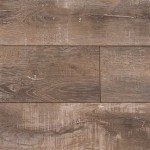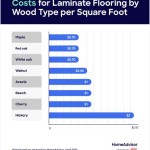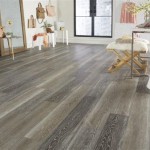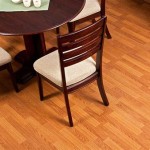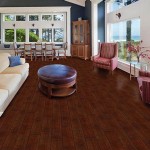The Optimal Flooring Choice for a Finished Basement: Essential Considerations
Transforming an unfinished basement into a functional and inviting space requires careful planning, and flooring plays a crucial role in this endeavor. The best flooring for a finished basement should not only enhance the aesthetics but also meet specific performance requirements. Here are some essential aspects to consider when selecting the ideal flooring for your basement:
Water Resistance: Basements are prone to moisture and flooding, making water resistance a top priority. Choose flooring materials that can withstand moisture, such as vinyl, tile, or waterproof laminate. Vinyl flooring is particularly resistant to spills and moisture, making it an excellent option for basements.
Durability: Basement floors may face heavy foot traffic and potential impacts. Opt for durable flooring that can endure wear and tear, such as tile, laminate, or engineered hardwood. These materials offer resilience and can withstand everyday use while maintaining their appearance.
Comfort: Basements are often used for relaxation and entertainment, so comfort is another key factor. Carpet provides a soft and cozy feel underfoot. However, it may require more maintenance and may not be as water-resistant as other options.
Style and Aesthetics: The flooring should complement the overall design and decor of your basement. Choose a flooring material that aligns with the desired aesthetic. Tile, for example, offers a wide range of styles and colors, while wood flooring can bring warmth and elegance.
Installation: Consider the ease of installation when selecting basement flooring. Some flooring materials, such as vinyl and laminate, are relatively easy to install, while others, such as tile and hardwood, may require professional installation. Factor in the time and cost associated with installation.
Maintenance: Regular cleaning and maintenance are essential to keep your basement flooring looking its best. Choose flooring materials that are easy to clean and maintain. Vinyl and tile are generally low-maintenance, while carpet may require more frequent vacuuming and professional cleaning.
By carefully considering these essential aspects, you can choose the best flooring for your finished basement that meets your functional and aesthetic needs. It will contribute to a comfortable, durable, and visually appealing space that enhances the overall value and enjoyment of your home.

Ash Wide Plank Flooring Hardwood Vermont

Best Types Of Hardwood Flooring Floor Guide

The 10 Best Hardwood Species For Wide Plank Flooring Vermont

Types Of Hardwood Floors The Home Depot

Best Kitchen Flooring Options For You Forbes Home

Best Flooring For Basements That Flood Try Waterproof Vinyl

Best Kitchen Flooring Options For You Forbes Home

Types Of Hardwood Floors The Home Depot

Types Of Hardwood Floors The Home Depot

Best Types Of Hardwood Flooring Floor Guide
Related Posts

